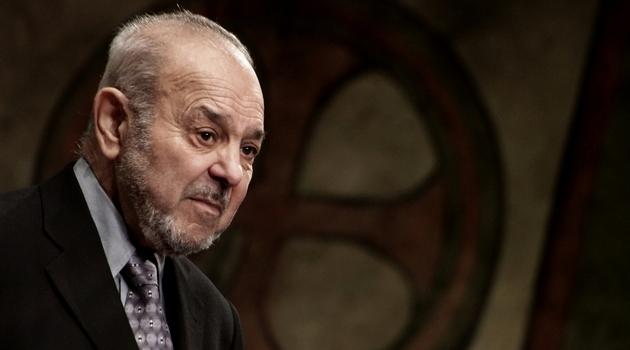Karel Holomek: When remembrance is out of joint

The month of August here is traditionally linked with commemorating the victims of the Roma Holocaust, unfortunately usually only in Roma circles. Of course, this occasion is also marked in the official circles of government and state, but that is not the same thing as being marked by society.
This is all part of a rather distorted, hypocritical morality that has been projected onto how our remembrance of these victims is perceived. Personally I do not want to recall only the Jewish and Romani victims of the Holocaust on these occasions, but all of the victims of the Second World War.
In my opinion, everyone, irrespective of identity, has contributed to the subsequent recognition of the monstrosity of that time and the behavior of people during it. While that epiphany gives us the certainty that these victims did not die in vain, even today we have not completely come to grips with this truth.
On 1 August a commemorative ceremony is held at Lety u Písku because in 1942, on that day, the camp was opened for Romani prisoners only, and one year later, also in August, the prisoners there were sent to Auschwitz to the "final solution". That ceremony is organized by the Lidice Memorial, which administers the Lety Memorial.
There is no doubt that handing over the administration of a Roma Holocaust memorial to a government institution such as the Lidice Memorial was not the government’s preferred alternative. This unwanted course of action, however, has since become fact: Since remembrance should be accorded to all victims, irrespective of their differences, then why make a distinction between the Czech victims at Lidice and the Roma victims at Lety?
On 2 August a commemorative ceremony is held at Auschwitz to mark the deaths of almost 3 000 Romani people from Bohemia and Moravia and from Germany in the gas chambers there during a single night in 1944. On 24 August there is a commemorative ceremony at Hodonín u Kunštátu, the camp that was intended for Moravian Roma, because on that day in 1943 its Romani prisoners were also sent to Auschwitz.
As if that were not enough, in May at the memorial in Lety u Písku the Committee for the Redress of the Roma Holocaust, led by Čeněk Růžička, whose forebears were in that camp, holds what I will call a separate commemorative ceremony of its own – a resistance ceremony. The basic purpose of that event is, in addition to commemorating the victims, to protest the local pig farm that dishonors the memory of those who died there.
The Government cannot afford not to attend that ceremony, as it does not want to draw attention to the fact that while it apologizes to Romani people for the previous approach taken to this issue, it will still not be removing the pig farm: Remembrance can take place between points a and b, but not beyond them! What’s more, the farm was created during the communist regime, one argument goes, and today it is forgotten that the communist nomenclature never paid any attention at all to remembering these Jewish and Romani victims – why remind anyone of that?
Let’s admit it: Most Romani people never visit remembrance sites like Lidice and Ležáky, nor do they visit the monuments to the liberation during which Czech patriots died, even though Romani people were among them as well, albeit sporadically. Similarly, Czech citizens do not visit these Romani memorials, with the exception of Jewish people and those who understand how these things are all related.
It would be appropriate to say: "We are what we are. During that time we behaved in such a way that now, for the sake of good will, we must apologize."
That would be appropriate, and it would be an indication that people and our times have undergone some sort of cultivated development: "You too, Roma, although you may not have been aware of it, you too contributed to the altar of the homeland, honor and glory to your memory!" No: Such necessary gestures are not cultivated today, more’s the pity!
I will not even discuss here the difficult births of the monuments to the so-called "Czech patriots" and freedom fighters who miraculously showed up once everything was over and committed atrocities against ethnic German children, elders and women whose families had lived here for centuries and who had given no cause for the massacres perpetrated against them. Those events are reluctantly, unwillingly accepted in many places, even though they leave a bitter taste in our mouths.
Precisely that fact could be the basis for the adoption of the compromises we cannot avoid when evaluating history and its consequences. Unless such remembrance is reflected into the present day, there will never be any reconciliation, and we will continue to travel in these circles of strange, hypocritical ceremonies that cannot be explained other than by the hypocrisy that is supposed to obscure the actual state of affairs.
First published by Karel Holomek on his blog.